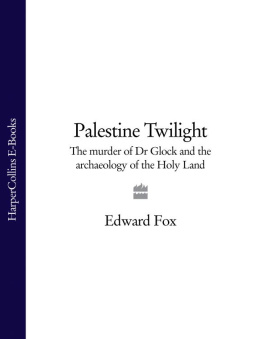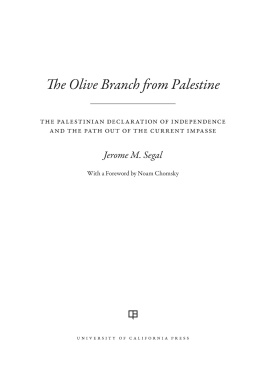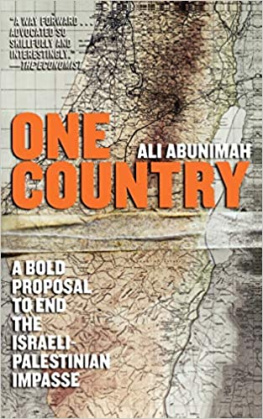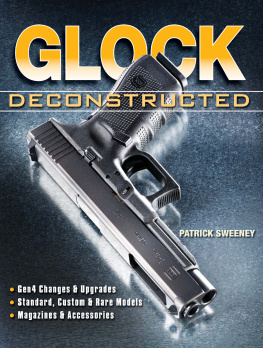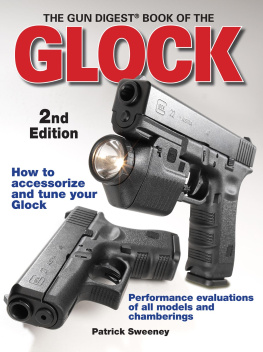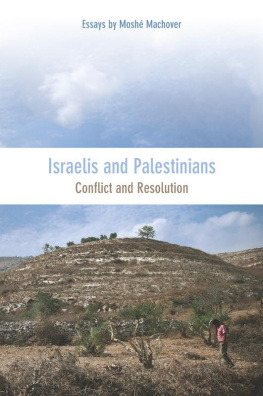I have changed the names of some of the people involved in this story in an attempt to defend their privacy. I have not changed the names of political figures and of people serving in governments.
As for place names, I use the name Palestine in this book at first as a geographical term denoting the area of the Levant or southern Syria that includes what is now the State of Israel and the Occupied Territories, which extends from the Jordan river to the Mediterranean, and from Lebanon in the north to the Negev desert in the south. This is the sense intended when dealing with the history and archaeology of the country. Later, particularly where I follow Albert Glocks life and work among the Palestinians, the name Palestine is often used as it would be understood in the Palestinian Arab context in which Albert Glock had immersed himself; that is, in a political sense, meaning the Palestinian nation in Palestine.
Bir Zeit written as two words is the name of the town in which Birzeit (written in English as one word) University is situated.
ON THE MORNING of Sunday 19 January 1992, the day he was to be murdered, Dr Albert Glock went to church with his wife in the Old City of Jerusalem. Albert Glock was an archaeologist, and the Director of the Institute of Palestinian Archaeology at Birzeit University, the main Palestinian university in the Israeli-occupied West Bank. The church he attended, the Church of the Redeemer, was a sombre nineteenth-century Crusader pastiche, one of a number of religious institutions clustered tightly around the Holy Sepulchre, the lugubrious and claustrophobic Christian shrine that is traditionally believed to contain the tomb of Jesus Christ and the site of his crucifixion.
He left the service after the Eucharist; his wife Lois stayed to the end: he wanted to get back to his office at Bir Zeit to work on pottery. He walked through Damascus Gate, the monumental, grimy Ottoman construction at the corner of the Old City where the world of Palestinian Jerusalem rubs uncomfortably against the world of Israeli Jerusalem, where Palestinian women in embroidered dresses sell fruit and vegetables on the busy pavements, and where minibuses and shared taxis depart for the towns and villages and refugee camps of the West Bank. Grey winter clouds clogged the sky, but despite the weather Glock had on only his well-worn black leather jacket. At about 10.30 a.m., he climbed into his blue Volkswagen van and drove northwards out of Jerusalem in the direction of Ramallah, passing first through Bayt Hanina, the Palestinian village that had been absorbed into the northern suburbs of Jerusalem where he and Lois lived. He bought an Arabic newspaper, and then stopped at a local bakery and bought a kaak simsim, a ring of pastry filled with dates and sprinkled with sesame seeds.
The checkpoint separating Jerusalem from the West Bank a roadblock made from slabs of painted concrete, with a small cabin beside it occupied by Israeli soldiers was open, so Glock was able to cover the distance from Jerusalem to Ramallah in about half an hour. He drove northwards through Ramallah, past the British-built prison inherited by the Israelis, along the road called Radio Boulevard, named after the array of three radio transmission masts built alongside it, also relics of the period of British rule that ended in 1948.
Glock stopped again before he reached Bir Zeit, at a house on the outskirts of Ramallah, near the radio transmitters, where the road was muddy and gouged with ice-filled potholes. This was the house of Dr Gabi Baramki, the acting President of Birzeit, and his wife Dr Haifa Baramki, the universitys Registrar. Nearly thirty years after first coming to Palestine, Glock still thought that it was an Arab custom not to make appointments, and Palestinian courtesy had restrained anyone from telling him this was not the case. When Haifa Baramki answered the doorbell and saw Glock in the doorway, she was not expecting to see him, but she was not surprised either.
Haifa told him that Gabi was not at home, but invited him in for coffee. Glock declined, but said he would return after he had finished working at the Institute. He would come back at about four, he said. He wanted to discuss the allocation of teaching assignments at the Institute. Gabi Baramki and Glock were close friends, and allies in Birzeits overheated academic politics. The conversation would undoubtedly touch on the problem that had been simmering in the Institute since the summer: Glock had turned down for a teaching job one of his longest-serving graduate students, who had reacted by waging a noisy, bitter and very public campaign to overturn the decision.
Before he left, Haifa Baramki asked him if he planned to stop at the house of the al-Farabi family in Bir Zeit. If he did, she asked, he might remind Maya al-Farabi, who was Glocks teaching assistant at the Institute, to attend a meeting the next day of a professional womens group at Birzeit to which they both belonged. The al-Farabis did not have a telephone, and Haifa knew that Glock was a regular visitor to the house. This was an errand that Glock would have been happy to undertake. Indeed, he was probably intending to stop there anyway. Maya al-Farabi was Glocks closest colleague at the Institute of Archaeology, and his favoured successor as Director. He had guided and nurtured her academic career every step of the way, from undergraduate to PhD, and had done the same for her younger sister, Huda. If Glock trusted anyone to take over his position as Director of the Institute, it was Maya al-Farabi. On working days, Glock would often have lunch at the al-Farabi house. As a sign of affectionate familiarity, they gave him a traditional Arabic nickname, Abu Abed. This meant father of Albert, which was also the name of Glocks eldest son.
By now it was between eleven oclock and noon. Glock drove out of Ramallah and down into a valley where a bypass to an Israeli settlement crossed the road to Bir Zeit. Here there was usually an Israeli checkpoint, with a jeep, a strip of spiked chain across the road, and some surly young soldiers with machine guns slung over their shoulders stopping vehicles and checking identity cards. Glock was slyly proud of his skill at talking his way past these obstacles. Palestinian friends would marvel at how he managed to appear at their door on days when the tightest closures were in place, when no one was able to travel anywhere. He took full advantage of his appearance as a serious-looking, elderly foreigner. He was even careful to establish discreet but cordial relations with the few Israeli soldiers he saw more than once at the checkpoints, chatting with them, aware of their boredom. If this made it easier to go about his business he was willing to do it, though he was careful not to seem too friendly with the soldiers when he had a Palestinian passenger sitting beside him.
Covering the distance from Ramallah to Bir Zeit took about fifteen minutes. The road winds around rocky, rubbly hills, and through a few villages. Just outside Bir Zeit, he drove past the new campus, built in 1980, and now closed by military order, a limestone quarry at the side of the road, and the houses on the outskirts of the town, including the al-Farabi house. He knew that Maya had a dentists appointment in Ramallah that day, and he assumed that she would be back home by the time he finished work at the Institute. He drove through the compact town, whose position on a ridge gave it a grand view of the valley below, with tiers of crumbling olive terraces, some in use, some not, descending to a narrow plain where, according to local legend, the Roman general Titus encamped with his army in the year 70 before marching on Jerusalem to besiege it. From this road you could look down into the valley and across towards Ramallah, at the blinking lights of the radio masts, and on the top of a distant ridge, the Israeli settlement of Beit El, site of the regions military headquarters, built on the traditional site of the biblical Bethel. On the slope below it one could see the Palestinian refugee camp of Jalazun. At night, these two enemy settlements, irreconcilable worlds of victor and vanquished, were visible only as streaks of light, the upper one brilliant white, the lower one yellow. When a power cut cast Bir Zeit and the surrounding area into darkness, Jalazun would seem to disappear, while Beit El, with its own source of power, blazed on.

